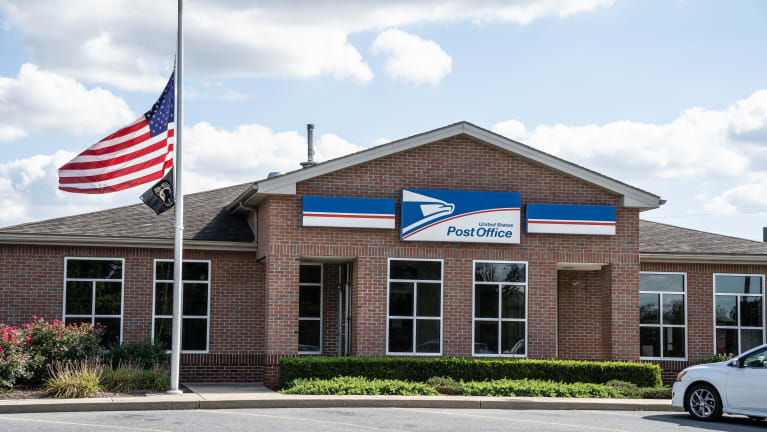
Takeaway: A Black applicant for a promotion who showed that she was arguably more qualified for the position than the white applicant who was selected raised an inference of racial discrimination and could therefore take her racial bias claim to trial.
A Black employee of the U.S. Postal Service (USPS) showed that she was arguably more qualified for a promotion than the white applicant who received the job, and that was enough to raise the inference that the USPS racially discriminated against her by denying her the position, a federal appeals court ruled recently. The plaintiff could take her claim under Title VII of the Civil Rights Act of 1964 to trial, the court said.
In April 2015, the plaintiff applied for the position of supervisor of customer services at the main post office in Grand Rapids, Mich. Fourteen other candidates applied for the position. A three-member review committee evaluated those applicants’ written applications and referred five candidates—including the plaintiff—to the postmaster general for Grand Rapids. After interviewing those five candidates, the postmaster general selected a white applicant for the job.
At the time that the plaintiff applied for the position, she had worked for the USPS for over 27 years, during which she held a variety of positions. She had extensive retail experience, including running a local post office’s retail unit for several years. During that time, her unit earned perfect scores for four consecutive years on the only independent measure of retail unit performance that the USPS uses. The method involves a “mystery shopper” reporting to the USPS about the quality of service provided by USPS retail employees.
Later in her career, the main post office’s retail supervisor abruptly retired, and the USPS asked the plaintiff to serve as acting supervisor because she could step into the position immediately without training. While serving in that position, the plaintiff’s unit also earned a perfect mystery shopper score. In addition, the plaintiff’s manager recommended her highly, she trained clerks on retail operations throughout Grand Rapids, and she was asked to train the applicant who was later selected for the position for which she unsuccessfully applied.
In addition to her professional experience, the plaintiff has three post-secondary degrees: an associate degree in accounting; a bachelor’s degree in business and management; and an MBA. She also received seven awards from the USPS throughout her career, according to court documents.
As for the applicant selected for the job, her formal academic training ended with high school. When she submitted her application, she had worked for the USPS for nearly eight years. During that time, she spent nearly two years as an acting supervisor of customer services at the main post office.
The postmaster general claimed that the successful applicant interviewed well. She indicated that she was not afraid to confront a difficult employee, as opposed to the plaintiff, who seemed “too nice.” The postmaster general said that she made her decision based on the interview and the written application.
Legal Action
The plaintiff ultimately sued for racial discrimination in violation of Title VII. The trial court dismissed the lawsuit before trial, concluding that the USPS articulated a legitimate, nondiscriminatory reason for its hiring decision, and the plaintiff failed to demonstrate that the USPS’s proffered justification for its hiring decision was a pretext for racial discrimination. The plaintiff appealed.
The appeals court first concluded that the plaintiff had established her initial case of disparate treatment based on race by showing that, although she was qualified for the job, it went to a white applicant instead.
The USPS then offered a legitimate nondiscriminatory reason for its decision. It claimed that it promoted the white applicant because she had more relevant supervisory experience, and she gave a better interview, the court said.
Then, the court explained, it was up to the plaintiff to show that the legitimate reasons offered by the USPS were not its true reasons, but were instead a pretext for discrimination.
In this case, the court said, the plaintiff provided an abundance of evidence substantiating that she was arguably more qualified for the position than the successful applicant.
If, the court said, a fact-finder can conclude that a reasonable employer would have found the plaintiff to be significantly better qualified for the job, but this employer did not, the fact-finder can legitimately infer that the employer consciously selected a less-qualified candidate—something employers do not usually do, unless some other strong consideration, such as discrimination, enters into the picture.
Although the selected applicant did have more supervisory experience, it was experience supervising mail carriers, the court noted. Because there were no carriers at the main post office, this was not relevant experience. To the contrary, the plaintiff had far more education related to business and accounting; more years of postal experience; more relevant retail experience; more executive and administrative scheduling experience; and more accolades and positive evaluations from within the USPS.
Accordingly, the court said, the plaintiff produced enough evidence to convince a reasonable jury that the USPS’s proffered reasons for not promoting her may have been a mere pretext for racial discrimination. The plaintiff could take her claim to trial, the court concluded.
Levine v. Dejoy, 6th Cir., No. 22-1388 (April 10, 2023).
Joanne Deschenaux, J.D., is a freelance writer in Annapolis, Md.


